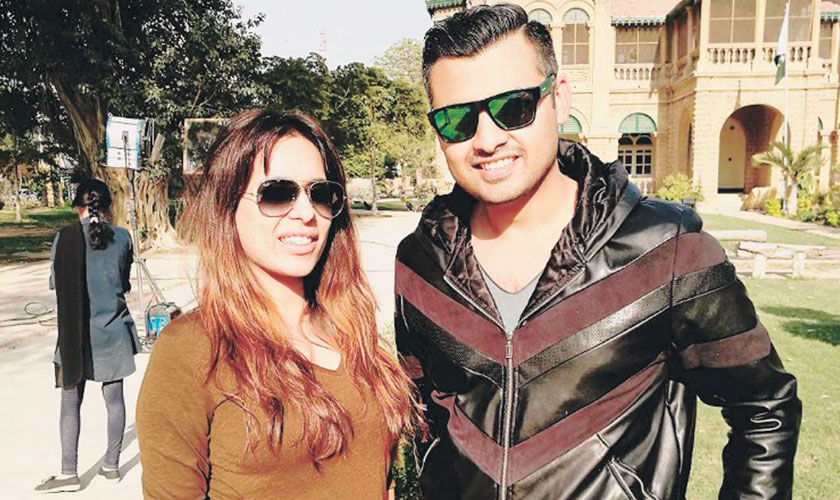Producer-director Rafay Rashdi remained at the receiving end of severe criticism post the release of his directorial debut, Thora Jee Le, in January this year. The film not only had a weak script but also several other drawbacks that led to negative reviews and poor box office numbers.
InstepINTERVIEW
The director talks about lessons learnt from Thora Jee Le and what improvements he is implementing in upcoming projects.
Producer-director Rafay Rashdi remained at the receiving end of severe criticism post the release of his directorial debut, Thora Jee Le, in January this year. The film not only had a weak script but also several other drawbacks that led to negative reviews and poor box office numbers. This, however, turned out to be one of the best learning experiences for the director who doesn’t only admit the flaws in the film but also hopes to not repeat them in his next.
In an exclusive interview with Instep, Rashdi shares what he has learnt from the process of filmmaking and what he believes Pakistani cinema needs to focus on to be able to produce better films.
“I believe that we will have different leagues of filmmakers in the market,” he began. “Some are going to make romantic comedies; some will make action movies while others will come up with horror films. They just need to be sure which market they want to cater to. For instance, my film Thora Jee Le talked about drug addiction and women empowerment – themes that have been explored several times in television. Similarly our film industry is also evolving with time. Shoaib Mansoor made Bol and Khuda Kay Liye that tackled dark subjects but the audience appreciated that. However, at present, we have turned more towards commercialization, which is why films with a comic spin are being appreciated more.”

Rafay Rashdi with designer Tabassum Mughal on the set of his fashion short film, Woh Aas, earlier this year.
Rashdi also pointed out that viewers who come to the cinema want to be entertained and this is something that filmmakers need to consider.
“What I learnt is that my film might have gotten too serious for the masses to digest as it lacked entertainment. Also, I realized that you need star power to pull masses to cinema halls, as fan following matters a lot in Pakistan and affects the business of a film. Though the actors who starred in my film are doing well, renowned faces are important for a wider reach.”
Rafay Rashdi has been working as Head of Productions for the last few months and has produced a bunch of TV plays that are doing well on the ratings charts. One of them is ongoing drama serial O’Rangreza that stars Sajal Aly, Bilal Abbas Khan and Noman Ijaz in pivotal roles and is one of the top rated plays these days.
Coming back to films, Rashdi talked about the current state of Pakistan’s film industry that is striving to stand strong on its own.
“None of the films released after Thora Jee Le (Whistle, Balu Mahi, Chalay Thay Saath) managed to make a mark or generate good numbers at the box office. Some of them had star power, production value and a lot more but they failed. We also need to think beyond festive seasons. Would films like Punjab Nahi Jaungi and Na Maloom Afraad 2 generate similar response if they hadn’t released on Eid? These are the things that we need to take into account aside from paying attention to the content. Content is the most important aspect of any film and if that is powerful, viewers will appreciate the work.”
Considering what he has been observing for the last couple of months, Rashdi has decided to take some time before he announces his next feature film. Though he had begun working on it, he will not announce the project until the end of this year. Once he finalizes everything and works on all aspects, only then he will proceed further.
Aside from TV plays and a feature films, Rashdi also released a fashion short film, Woh Aas, in collaboration with designer Tabassum Mughal earlier this year.
As the interview came to a close, Rashdi emphasized on the need to work in unity as he believes that’s the only way out.
“We made a film called Project Ghazi and premiered it but it didn’t release. Why are we letting that happen? We are rushing into things, we don’t have focus groups and there is not much research involved in the projects. I clearly remember I had a lot of pressure at the time of Thora Jee Le as screens were shutting down given the ban on Indian films at that time. I was told that I will have to consider that. Every relevant party needs to join forces to develop the industry. Cinema owners also need to give more space to Pakistani content and not sideline that for the sake of business,” he concluded.